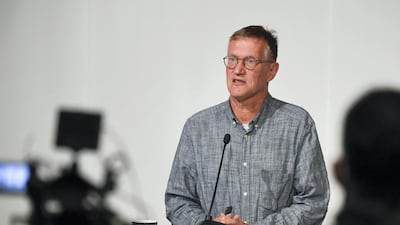Swedish doctors say the country has “suffered a lot” because of its herd immunity experiment as the man behind the strategy fades from view.
Sweden, which opted for a “soft” approach to the pandemic and never ordered a lockdown, is now tightening restrictions as it races to suppress spiralling infections.
Infections are rising quickly and exceeding the forecasts of the Public Health Agency, which predicts a peak will be reached in mid-December.
Faring far worse than its Nordic neighbours, the death toll in the country exceeded 7,000 last week.
Ending the hands-off approach, the government has now imposed a raft of new measures to stop the health system from becoming overwhelmed.
Schools and day care centres have closed, while Swedes are banned from gathering in large groups and cannot buy alcohol after 10pm.
Piotr Nowak, an infectious diseases consultant at Stockholm’s Karolinska University Hospital, said it was clear Sweden’s voluntary measures had failed, adding that the medical community had never agreed with the Public Health Agency strategy.

"Authorities chose a strategy totally different to the rest of Europe, and because of it the country has suffered a lot," Dr Nowak told the Wall Street Journal.
Suspicions arose recently that Anders Tegnell, the country’s high-profile epidemiologist, was being pushed aside by government officials. Swedish Prime Minister Stefan Lofven last week held a press conference at the same time as Dr Tegnell, fuelling speculation of a split between the government and its scientific advisers.
The shift marks a vastly different mood from when Dr Tegnell captured the attention of Swedes, when some compared him to "the hero in an adventure film”.
Dr Tegnell has always denied that he was pursuing a herd immunity strategy but did argue that Swedes had built up greater levels of immunity to coronavirus than other European nations.
He appeared to backtrack on that belief last week when he admitted herd immunity was “very hard” to understand.
“It’s obvious that it does slow down transmission, but it’s been difficult to understand how large that effect is and how it should be weighed against other factors that speed up transmission,” Dr Tegnell said.
“[The] balance may have been different than I and many others believed.”










